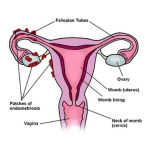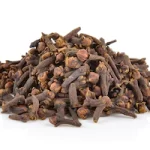If you go by the recent study and research conducted by some Swedish investigators, there may be a link between the occurrence of acne during the later stages of adolescence and the risk of getting prostate cancer. This is the first large scale study that has tried to associate a skin condition-clinically diagnosed acne with prostate cancer. The risk of having prostate cancer was higher when you had been diagnosed with acne in your teen years compared to not having had it. The study was published in December, in the International Journal of Cancer.
• 243,187 men were analyzed as part of the study: The team of researchers looked at long term data of more than two hundred thousand men, who were for the most part born in the mid-1950s. Military service during that time was compulsory for men in Sweden. The practice stopped in the 1980s however. As part of conscription requirements, many conditions were looked at, and recorded from the then 18 and 19-year old soldiers during the 1970s. One of these were acne and its incidence, as well as the range of it spreading was noted.
• Follow up of this data was done: When men from the initial study were followed up on, it was found that 1633 men had been diagnosed with prostate cancer, and then the proportion of them who had, and didn’t have acne were analyzed. Most men with prostate cancer (1586) did not have acne as well. Those of the men who did have acne (47), only two of them had a highly severe form of the disease.
• More evidence that acne bacteria may also play a role in prostate cancer:Propionibacterium acnes, commonly associated with clinical acne has been identified as the most common microbe found in prostate cancer, and have been associated with inflammatory focuses in prostate cancer.
Cancer! The name itself causes panic. Various cancer research departments are now coming up with the latest solutions for treating cancer. Prostate cancer is a type of cancer, which has resulted in the loss of many lives. Often with various treatments like surgery, external radiation therapy or chemotherapy, oncologists always try to provide their patients with the best treatment for prostate cancer. However, some of these treatments have been unsuccessful making new and modern treatments necessary for a patient’s survival. Prostate massagers have been introduced as a good alternative to the older treatment methods administered. Doctors and oncologists across the world are now getting specialized training in this field.
The another method of treatment is prostate seed implants. This treatment has proved to be extremely essential through implantation of radiation seeds in the prostate gland to reduce cancer cells. When cancer is in its early stages, this method has proven to be extremely beneficial when compared to chemotherapy or external radiation. Also, the complications caused by this type of treatment are less when compared to traditional treatments. When it is combined with external radiation, it can definitely prove to be successful. The suitability of the permanent seed implants in advanced stages is still being studied.
The seeds used are very small in size and the affected area is also small. Patients are required to take about 40 injections to implant about 150 radioactive seeds at regular intervals. This kind of treatment is also commonly known as brachytherapy. A large amount of seeds are used for providing effective treatment. Radiation emitted from these seeds affects the cells that are close to the infected area, where seeds are implanted. A good study needs to be made to determine the location of cancerous cells so that the treatment can be facilitated effectively. Once this is determined, the seed implants will be done in the areas where the cancer cells have been directly affected. With this treatment, there are great chances that people can fight and win the battle against prostate cancer.







